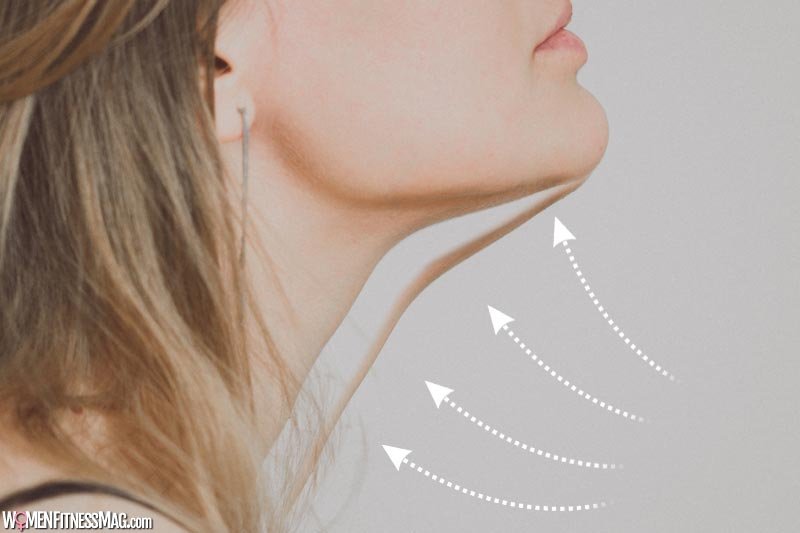Neck Lift Recovery: What You Can Expect : If you’re having neck lift surgery in the near future, or if you’re considering the procedure, you probably have questions. And that’s great – the ideal time to ask about recovery is before your procedure, so you can prepare for what’s to come.
Actually, neck lift recovery can be easier than you think. On the other hand, it’s still surgery. So just how careful should you be? Is there anything you can do to make your neck rejuvenation recovery easier? And when should you see your doctor?
Find out all this and more with our guide below.
About Neck Lift Surgery
Your neck lift should take anywhere from one to three hours. Every patient and every neck lift is different, so ask your plastic surgeon for specifics if you need to know exactly how long you will be on the table.
Most neck lift procedures follow these steps:
- You may be given light oral sedation, such as Xanax or Valium, so you’re more relaxed.
- You will be made comfortable on the operating table.
- Most neck lifts are performed under general anesthesia, or you may be given IV sedation. Either way, an intravenous line (IV) will be placed in your arm, and sedation will be administered.
- The surgeon will make an incision. In most cases, this incision goes behind the ear and back into the hairline.
- The surgeon will remove excess skin from the area and lift the remaining skin.
- The incision will be closed with sutures (stitches).
How to Prepare for Your Neck Lift Recovery
Your neck lift recovery starts before the surgery, by preparing in advance for what comes afterward.
Keep these steps in mind:
- Ask someone to drive you to and from the hospital or clinic. You will not be able to drive yourself home after your procedure.
- Stop taking any medications according to your plastic surgeon’s directions. These may include blood thinners or other medicines that could hinder your recovery.
- Don’t drink alcohol in the days before your surgery. Alcohol has been shown to slow healing and increase the risk of complications.
- Don’t smoke. Smoking greatly increases post-surgical complication risks.
- If possible, arrange to have help around the house for at least two days following your surgery. While you’ll be mobile, you may be uncomfortable and tire easily during this time.
Your Neck Lift Recovery Timeline: What to Expect
Day One
On the day of your surgery, you’ll be asked to walk very short distances, such as movement around your house. Light activity decreases the risk of blood clots.
You may awaken from your surgery feeling dizzy or nauseous. If your nausea is severe, ask your doctor about medicines that can help. Be careful walking if you’re experiencing dizziness.
You will not be able to drive yourself home after your surgery, so make sure you have a ride ready.
Day Two
You may experience numbness, tingling, or discomfort. Pain is not usually severe after a neck lift, but if you’re experiencing significant discomfort, take any medications your plastic surgeon prescribes to address this.
If you had a surgical drain inserted, your doctor will ask you to come back at this time so he or she can remove it.
Day Five
Between days two and five, your plastic surgeon will have you come into the office in order to remove your bandages and stitches.
You may notice significant bruising and swelling. This is normal.
Week Two and Beyond
You will begin feeling much more like yourself. You will probably be able to start driving again, and your discomfort should be much less.
Don’t expect bruising and swelling to go down immediately. It can take several weeks to three months for your bruising to disappear completely and for you to be able to see your final look.
Tips for a Smoother Recovery
Here are some do’s and don’ts so your recovery is easier.
- Don’t smoke, and don’t drink alcohol. Either of these can slow your recovery and may increase your risk of complications.
- Follow all your plastic surgeon’s recommendations. They’re there to help you heal as quickly and easily as possible.
- Attend all follow-up appointments on time. Removal of your drains and stitches is timed in a way to maximize healing.
- Have help ready in case you’re dizzy or tired following your surgery.
- Prepare meals in advance and freeze them. It will be much easier to reheat cooked, light meals than to prep and cook immediately after surgery.
- Avoid the sun, and wear sunscreen as soon as your physician tells you that you’re able to. UV exposure can increase the risk of scarring.
- Call your doctor right away if you experience a fever, a significant and sudden increase in swelling, nausea and vomiting that doesn’t resolve after 24 hours, or have an increase in redness near the incision site.
- Be gentle with yourself. After all, you’ve just had surgery. Don’t be entirely sedentary, but do take naps or sit down and rest if you need to.
Remember that when it comes to neck lift surgery, you’re an active participant. Following your doctor’s instructions and the tips above can help you heal better and avoid potential complications.
In a few weeks, you’ll have your final, healed result — and you’ll be moving forward in your daily activities with a new, rejuvenated look.
Related Videos about Neck Lift Recovery: What You Can Expect :
Neck Lift Recovery: What You Can Expect
neck lift regrets, signs of a bad neck lift, neck lift recovery time, neck lift recovery tips, mini neck lift recovery time, neck lift cost,




